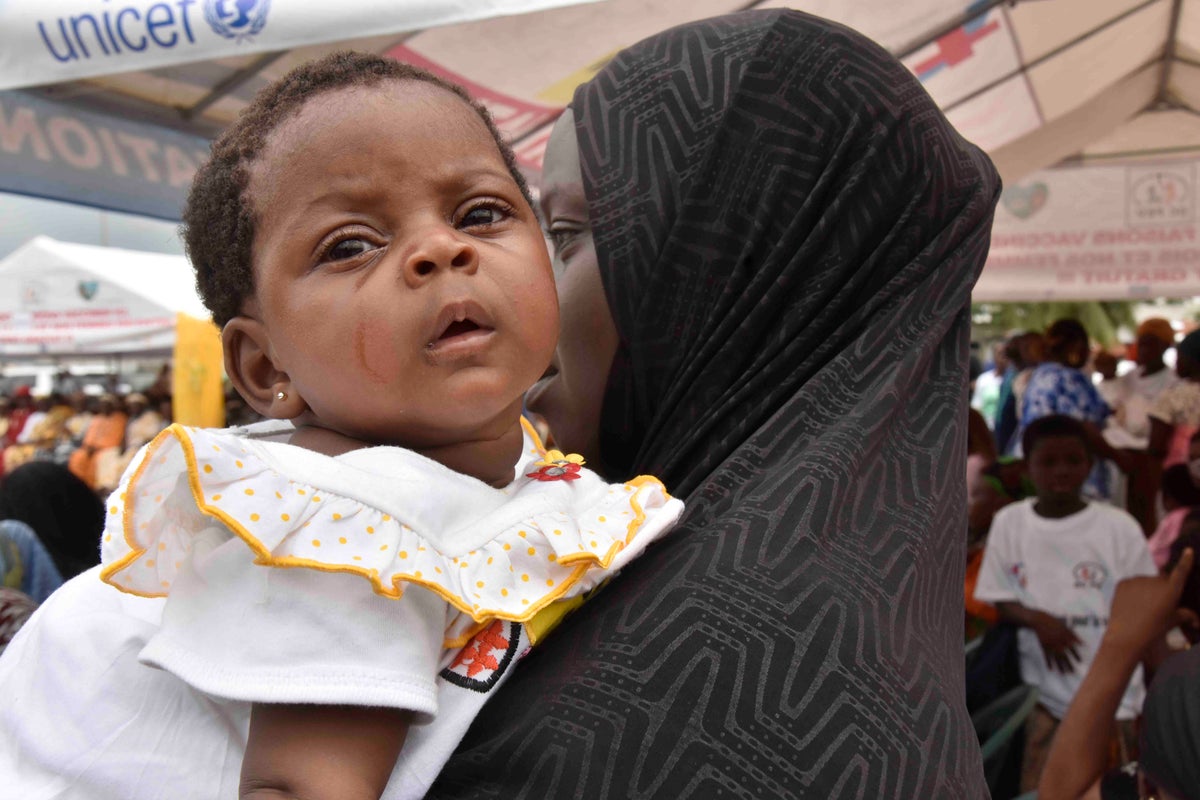
Cuts to the world’s biggest funder of malaria prevention, including by the UK government, could lead to almost a million more deaths by 2030 – including 750,000 children, a report has warned.
It could also drive losses of $83 billion (£62bn) in national economies across Africa, and cost billions in extra trade with the rich countries making up the G7.
On 21 November the Global Fund to Fight AIDS, Tuberculosis and Malaria, which provides 59 per cent of all international malaria funds, will hold a summit with the aim of raising $18bn (£13.5bn) for the next three years. The event will be co-hosted by the UK and South Africa.
Historically one of the fund’s biggest contributors, the UK is widely expected to cut its contribution this year, amid major cuts to foreign aid.
A report by the African Leaders Malaria Alliance (ALMA) and Malaria No More UK estimated that if the Global Fund could no longer pay for malaria prevention, only treatment, almost one million more people would die by 2030 with 750,000 of them being children under five.
In the event that the Global Fund raised 80 per cent of what it did last time, that would still amount to more than 80,000 additional deaths.
The disease kills roughly 600,000 people a year, with the vast majority being children under five.
“We are really at a very momentous time in human history,” said Joy Phumaphi, executive secretary of AMLA and former health minister of Botswana. “There are tools that are available that can actually facilitate the elimination of malaria,” she said, including new vaccines, more effective insecticide- treated bed nets and the use of drones to kill mosquito larvae in standing water.
But, she added, “one of our biggest challenges at the moment is financing”.
“The thing with a disease like malaria…we don't have to drop by very much in terms of investments in order for [cases] to spiral out of control,” Ms Phumaphi said. “If we don't sustain the same level of coverage, we are going to have a crisis”.

When Donald Trump slashed virtually all foreign aid spending, his administration said it would protect lifesaving work including malaria drugs. But the US cut much of the staff, transportation and other systems needed to get the medicines to people.
“You having the life-saving intervention, but not having the vehicles that are going to deliver it to that little baby in the rural areas is not really going to be very helpful to that little baby,” Ms Phumaphi said.
In some countries, parents are left being asked to pay out of pocket for treatments they cannot afford.
And while African governments are trying to take over, most do not have the funds to fully plug the gaps left by the withdrawal of aid.
Aziza, a school teacher in western Kenya, said children in her class were often unable to get medicine when they developed bouts of malaria because their parents could not afford it. In many cases they would be given only paracetamol.
“By the end of the week, you might be having 15 learners being absent,” out of a class of roughly 70 children, she said, leading to low academic performance
“Some of them have high fever and they will be sweating…they cannot concentrate. So you'll see the child all the time sleeping in class.
“And some of them who love school actually, they will come complaining, ‘Teacher, I have not been at school because I was sick, but I want to do this and this…I want to be a doctor,’” Aziza recounted.
“Watching a child die from malaria is one of the worst traumas that you could possibly have,” Ms Phumaphi explained. “I've seen so many children dying from malaria, and it's painful, and you can imagine what it is like for the mother”.
While the toll of these funding gaps can be measured most painfully in lives lost, Ms Phumaphi is also keen to stress the loss of income to individual families and of productivity to economies.
Children, “lose school days and their performance declines…this is going to show itself then in earning potential in later life”.
The vast majority of the Global Fund’s budget comes from governments, but this year it is making a bid for greater contributions from private industry and philanthropy.
“The private sector really should be alert to these issues…because this has got potential in terms of their own productivity,” Ms Phumaphi said.
“Malaria causes poverty…And that reduces their market,” she added.
Gareth Jenkins, Managing Director at Malaria No More UK, said: “Full investment in the Global Fund can save millions of children's lives, unlock billions in growth, and make the world safer.
“This not only saves lives around the world but also helps bolster the UK’s trading relationships with some of the world’s fastest-growing economies in Africa.”
This article has been produced as part of The Independent’s Rethinking Global Aid project
Why AI-generated ‘poverty porn’ fake images need to be stopped
Gaza and Sudan show why detecting famine cannot just be left to AI
Stark plea for UK not to cut aid funding to fight biggest killer infections
There’s one very good reason Trump should never win a Nobel prize
Woman plays clarinet during surgery for Parkinson’s – and sees instant results
‘I was diagnosed with a life-changing kidney condition through the NHS app’







